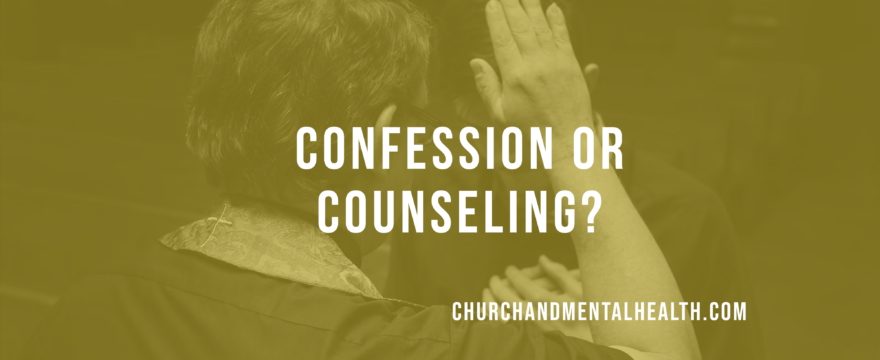In the realm of Christian ministry and mental health, pastors and Christian clinical counselors play vital roles in supporting the well-being of individuals. While their objectives often intersect, there are significant differences in how they approach the issues they handle. Christian pastors primarily focus on spiritual guidance and moral development, emphasizing living in accordance with Christian teachings. In contrast, Christian clinical counselors, although informed by their faith, concentrate more on addressing emotional and behavioral problems using psychological methods and evidence-based practices.
Guiding Morality and Spiritual Growth
Christian pastors are spiritual leaders who aim to guide their congregation in matters of faith, ethics, and morality. Their primary responsibility is to shepherd their flock toward a deeper relationship with God and to encourage them to live out Christian values in their daily lives. Pastors draw heavily on the teachings of the Bible to instruct and correct moral behavior. They often address issues such as honesty, integrity, forgiveness, and sexual morality, helping individuals to align their actions with scriptural teachings.
Pastors might provide moral guidance by:
- Preaching and Teaching: Pastors deliver sermons and Bible studies that illuminate moral lessons. They interpret biblical texts to provide direction on what is considered righteous living according to Christian principles.
- Counseling Sessions: While pastors are not typically trained therapists, they offer counseling that focuses on moral and spiritual concerns. For example, they might counsel a congregant struggling with sin or a moral dilemma, using scripture as a guide to correct behavior and encourage repentance.
- Spiritual Discipline: Pastors may encourage practices like prayer, fasting, and meditation on scripture to foster spiritual growth. These practices are seen as ways to build moral character and resist temptation.
- Community Accountability: Within a church community, pastors may facilitate accountability groups or mentoring relationships where members encourage one another to live according to Christian ethics.
In all these roles, the ultimate goal of a pastor is to lead individuals toward a life that reflects the love, compassion, and holiness of Christ, emphasizing repentance, forgiveness, and moral transformation.
Addressing Emotional and Behavioral Health
Christian clinical counselors, on the other hand, are professionals trained in psychology and counseling who integrate their Christian faith into their therapeutic practices. Their focus is less on moral instruction and more on helping individuals manage and overcome psychological, emotional, and behavioral challenges. While they may share the same faith as pastors, their methods and goals can differ significantly.
Christian clinical counselors focus on:
- Mental Health Diagnosis and Treatment: These counselors are equipped to diagnose and treat a range of mental health issues, such as depression, anxiety, trauma, and addiction. They use evidence-based therapeutic techniques, including cognitive-behavioral therapy (CBT), psychodynamic therapy, and other modalities.
- Emotional Support: Counselors provide a safe space for clients to express their feelings and work through emotional pain. They help individuals understand the root causes of their issues, develop coping mechanisms, and build resilience.
- Behavioral Change: Unlike pastors, who might emphasize changing behavior to align with moral principles, clinical counselors focus on behavior modification techniques that can improve mental health and well-being. This might include helping clients develop healthier habits, manage stress, or improve interpersonal relationships.
- Integration of Faith: While clinical counselors may draw on Christian principles, their approach is more nuanced. They might incorporate prayer, scripture, or discussions about faith into their sessions, but only if it aligns with the client’s beliefs and therapeutic goals. Their primary focus remains on the client’s psychological health, with spirituality serving as a supportive framework.
- Collaboration with Other Health Professionals: Christian clinical counselors often work in collaboration with other healthcare providers, including psychiatrists and general practitioners, to ensure a comprehensive approach to a client’s mental health. This multidisciplinary approach ensures that all aspects of a person’s well-being are considered.
A Harmonious Approach
Although the roles of Christian pastors and clinical counselors are distinct, they can complement each other. A pastor may refer a congregant to a clinical counselor when they recognize that the individual’s challenges go beyond spiritual or moral issues and require professional mental health intervention. Conversely, a Christian counselor may encourage clients to engage in their faith community and seek pastoral support as part of their holistic healing process.
The key is understanding the boundary lines of each role:
- Pastors should be aware of their limitations in handling psychological issues and recognize when a referral to a clinical counselor is necessary. Their focus on moral and spiritual development should be complemented by an awareness of mental health concerns.
- Christian Clinical Counselors should respect the importance of an individual’s spiritual life and be sensitive to integrating faith into the therapeutic process without imposing moral judgments. Their role is to facilitate healing and provide support, focusing on the mental and emotional aspects of their client’s lives.
Conclusion
There certainly are outliers where Christian counselors have their MDIV (or in my case Masters in Family Ministry) and pastors who are/were licensed counselors. But these tend to be much more the exception than the rule.
The difference between the roles of Christian pastors and Christian clinical counselors highlights the necessity for a balanced approach to personal development, one that respects the importance of both moral integrity and psychological well-being. By recognizing their distinct contributions, both pastors and counselors can work together to provide comprehensive support that addresses the whole person—mind, body, and spirit. This collaboration ensures that individuals receive the full range of care they need to lead healthy, fulfilling lives that honor both their faith and their mental health.
